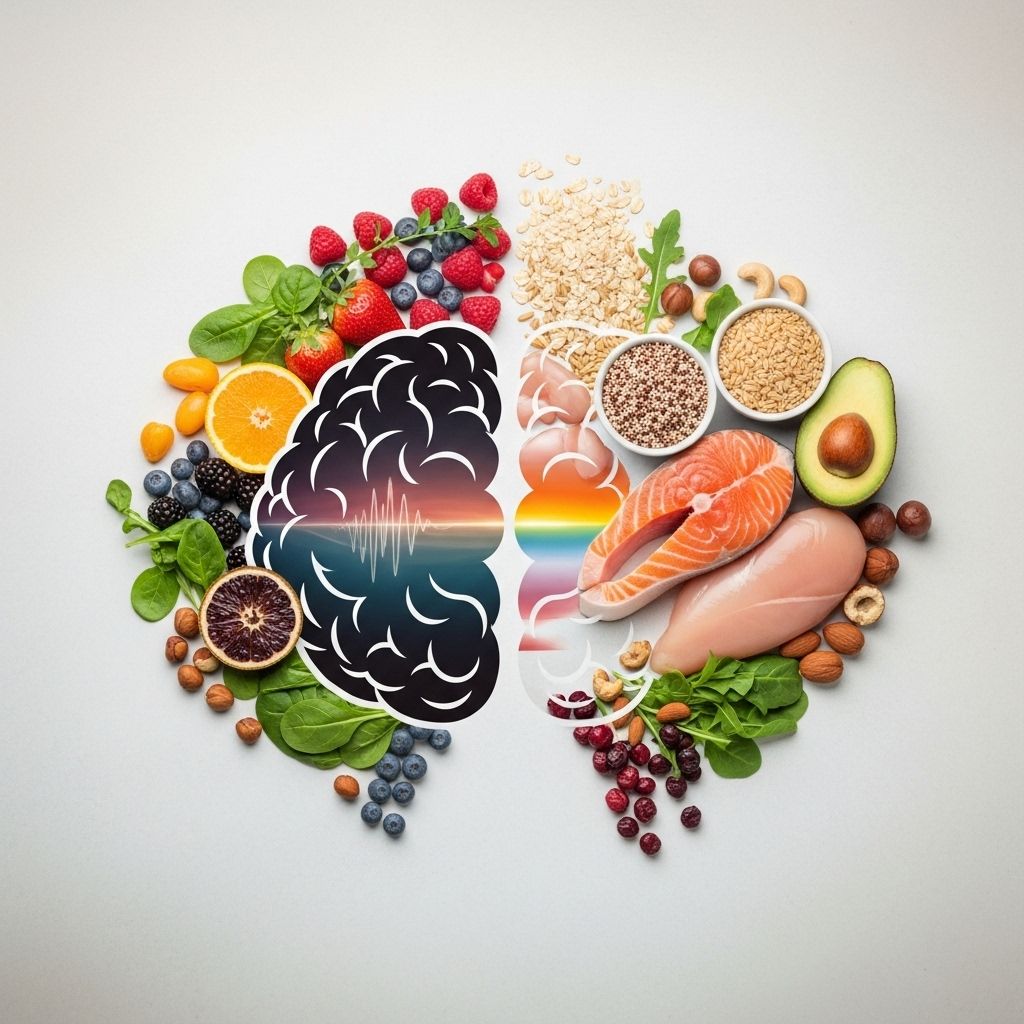Track Mood with Diet and Nutrition Integration
Balanced meals and targeted nutrients can transform how you feel throughout the day.

Integrating diet and nutrition into daily life can significantly impact mental health and mood. Research has shown that certain dietary patterns and specific nutrients can influence mood, cognitive function, and overall mental wellbeing. This article delves into the complex relationship between diet, nutrition, and mental health, providing insights into how diet can be used to track and improve mood.
Introduction to Diet and Mental Health
The connection between diet and mental health has gained substantial attention in recent years. Studies have shown that dietary patterns, such as the Mediterranean diet, rich in fruits, vegetables, and whole grains, are associated with better mental health outcomes compared to Western diets high in processed foods and refined sugars. Understanding this relationship can help individuals use diet as a tool to manage mental health conditions like depression and anxiety.
Dietary Patterns and Mental Health
Different dietary patterns have varying impacts on mental health:
- Mediterranean Diet: High in fruits, vegetables, nuts, and legumes, this diet is linked to reduced symptoms of depression and anxiety.
- Western Diet: Dominated by processed foods and refined sugars, this diet is associated with increased risk of depression and poor mental health.
Key Nutrients and Mental Health
Certain nutrients play a crucial role in mental health by influencing neurotransmitter levels and brain function:
- Omega-3 Fatty Acids: Found in fish and nuts, these fatty acids support brain health and may reduce symptoms of depression.
- Vitamin D: Important for maintaining serotonin and dopamine levels, which are vital for mood regulation.
- Probiotics: Beneficial bacteria that support gut health, which is linked to improved mood and reduced stress.
The Gut-Brain Connection
The gut and brain are closely linked via the gut-brain axis, which involves bidirectional communication between the gut microbiome and the central nervous system. This connection suggests that dietary choices can affect mood by influencing gut health:
- Gut Microbiome: A diverse gut microbiome is crucial for brain health and mood regulation. Foods high in fiber, such as fruits and vegetables, help maintain a healthy microbiome.
- Inflammation: Certain diets can cause inflammation, which disrupts neurotransmitter levels and affects mood. Anti-inflammatory diets rich in omega-3 fatty acids and antioxidants are beneficial.
Tracking Mood with Diet
Monitoring how diet affects mood can be a powerful tool for managing mental health. Here are some strategies for tracking mood in relation to diet:
- Food Diary: Record what you eat and how it makes you feel to identify patterns and make informed dietary changes.
- Regular Meals: Eating balanced meals at regular intervals helps maintain stable blood sugar levels, which can reduce mood swings.
- Limit Processed Foods: Focus on whole, unprocessed foods to reduce inflammation and improve gut health.
Impact of Carbohydrates on Mood
Carbohydrates, particularly those with a high glycaemic index, can significantly impact mood:
- Glycaemic Index: Foods with a high glycaemic index cause rapid spikes in blood glucose followed by crashes, which can lead to mood swings and increased symptoms of depression.
- Refined Carbohydrates: Consuming diets high in refined carbohydrates may increase the risk of depression due to the fluctuations in blood glucose and insulin levels.
FAQs
Q: Can diet alone cure depression?
A: While diet can help manage symptoms of depression, it should be part of a comprehensive approach that includes other treatments like therapy and medication.
Q: How long does it take to notice the effects of dietary changes on mood?
A: Changes in mood due to dietary adjustments can be noticed within a few weeks to months, depending on the individual and the extent of dietary changes.
Q: Are there specific foods that can instantly improve mood?
A: Certain foods like dark chocolate, berries, and nuts may provide a short-term mood boost due to their high content of flavonoids and healthy fats.
References
- https://pmc.ncbi.nlm.nih.gov/articles/PMC7322666/
- https://www.massgeneralbrigham.org/en/about/newsroom/articles/how-food-impacts-your-mood
- https://pmc.ncbi.nlm.nih.gov/articles/PMC6769512/
- https://www.health.harvard.edu/blog/nutritional-psychiatry-your-brain-on-food-201511168626
- https://health.mil/News/Articles/2025/07/28/Foods-for-Your-Mood-Nutrition-Helps-with-Emotional-Well-Being
- https://www.uclahealth.org/news/article/you-are-what-you-eat-diet-may-affect-your-mood-and-brain
Read full bio of Sneha Tete












